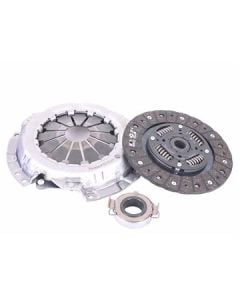High-grade Toyota Tazz Engine for Sale: Locate Yours Today!
High-grade Toyota Tazz Engine for Sale: Locate Yours Today!
Blog Article
Engine Purchasing Professional Tips on Selecting the Right Engine for Your Details Requirements
Choosing the best engine for your particular demands involves a complex interaction of factors that go beyond plain horse power figures. By delving right into the details of power versus efficiency, examining fuel ratings, and budgeting for long-lasting costs, one can absolutely optimize their engine choice.
Power Vs. Efficiency: Finding the Balance

When choosing an engine, it is essential to strike a balance in between power and efficiency to satisfy your details demands effectively. Power refers to the engine's capability to generate power for propulsion, identifying variables like acceleration, towing capability, and overall efficiency (Toyota Tazz Engine For Sale). On the various other hand, efficiency associates to how well the engine uses fuel to generate power, affecting elements such as gas economic climate and environmental friendliness
Attaining the right equilibrium between power and efficiency is necessary due to the fact that an engine that is also effective may eat extreme gas, causing greater operating expense and unneeded stress on the environment. Alternatively, an engine that prioritizes efficiency over power might result in slow-moving efficiency, especially popular scenarios like hauling heavy loads or driving uphill.
To make an educated decision, think about aspects such as your common driving problems, the desired usage of the car, and your personal preferences. By assessing your priorities and requirements, you can pick an engine that strikes the best equilibrium between power and effectiveness, ensuring optimum performance while minimizing ecological influence and operating expense.
Comprehending Engine Dimension and Type

In addition, engine kind plays a crucial duty in identifying the efficiency characteristics of an engine. Usual engine types include inline engines, V engines, and rotating engines, each with its special advantages and downsides. The engine kind impacts elements such as the engine's dimension, weight circulation, and power delivery. Comprehending the interplay in between engine size and kind is vital in selecting an engine that aligns with your specific needs and priorities, whether it be power, performance, or a balance of both.
Consider Your Lorry's Demands
If you are looking for an engine for a sturdy vehicle that will certainly be made use of for towing, you will certainly require an effective engine with high torque abilities. On the various other hand, if you are choosing an engine for a compact auto mainly used for city commuting, gas effectiveness might be an extra essential variable to think about.

Examining Gas Efficiency Scores
Assessing gas performance scores is a critical aspect of picking the appropriate engine for your lorry, making sure expense financial savings and environmental sustainability. Fuel effectiveness ratings, normally measured in miles per gallon (MPG) for gasoline engines or kilowatt-hours per 100 miles (kWh/100 miles) for electric engines, suggest just how far a car can take a trip on a check over here specific amount of fuel or electricity. Higher MPG or reduced kWh/100 miles worths indicate a lot more effective engines, equating to minimized fuel costs and lower carbon emissions.
Additionally, compare various engine options within the same car class to identify the most economical selection. Aspects such as engine dimension, weight, aerodynamics, and hybrid or electrical capabilities can all influence gas performance.
Budgeting for Long-Term Costs
Tactically preparing for long-term costs is imperative when selecting an engine, making certain economic sustainability over the automobile's life-span. While the first acquisition price of an engine is a considerable element, it is important to think about the long-term costs connected with maintenance, repair services, and gas usage. Opting for a more fuel-efficient engine might have a greater upfront price but can lead to significant cost savings in time. Normal maintenance, such as oil modifications, filter replacements, and tune-ups, is crucial to maintain the engine running efficiently and successfully, lowering the risk of pricey fixings down the line.
Additionally, researching the availability and cost of replacement parts for the chosen engine is important in budget planning. Engines with conveniently offered and cost effective parts can significantly influence lasting maintenance costs. In addition, thinking about the engine's durability and expected life expectancy can aid avoid unforeseen replacement prices in the future. By meticulously budgeting for these lasting costs and factoring them right into the decision-making process, people can choose an engine that not only meets their instant needs however additionally stays cost-efficient throughout its life-span.
Conclusion
Finally, selecting the appropriate engine for your certain demands calls navigate to these guys for stabilizing power and efficiency, recognizing engine dimension and kind, considering your car's demands, evaluating gas effectiveness ratings, and budgeting for lasting prices. By thoroughly taking into consideration these variables, you can make certain that you select an engine that fulfills your needs and supplies ideal performance for your automobile.
To further fine-tune the option procedure of an engine that strikes the ideal equilibrium between power and effectiveness, it is vital to dig into the intricacies of understanding engine size and type. Engine size refers to the total quantity of air and fuel that can be pressed via the engine cyndrical tubes. Common engine kinds consist of inline engines, V engines, and rotating engines, each with its unique benefits and drawbacks. Recognizing the interplay between engine size and type is vital in picking an engine that aligns with your specific requirements and priorities, whether it be power, effectiveness, or a balance of both.
Fuel performance scores, typically gauged in miles per gallon (MPG) for fuel engines or kilowatt-hours per 100 miles (kWh/100 miles) for electric engines, suggest just how much a lorry can travel on a particular quantity of gas or electrical power.
Report this page